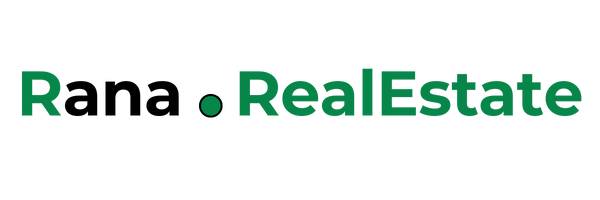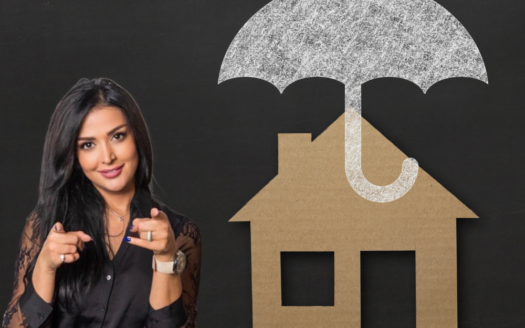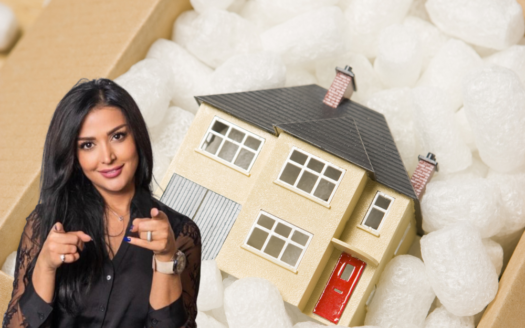4 Strategies to Accelerate your Home Equity Growth
A home is a unique financial investment–it’s a place to build memories with family and friends, as well as an important part of establishing a healthy financial future. Home equity can come in handy for many future investments and changes in your financial status: planned (like retirement) and unplanned. The faster you build equity in your home, the more you’ll have to work within less time. Easier said than done, right? Not exactly. Here are some straightforward strategies and guidelines to boost your equity-building pace.
Before we start, let’s review the fundamentals…
Home equity is determined by the difference between the present value of your home and the amount of your remaining mortgage debt.
When describing how to build equity in your home, keep in mind that this process happens long-term (read: decades). The majority of people need to take out a home loan to afford the house they choose to buy. This means that initially, you own only part of your home, while the bank owns the rest. Making your monthly mortgage payments effectively chips away at the amount of debt owed on your property to the bank, increasing your ownership stakes (and equity), accordingly. If the value of your property goes up, this also boosts your share of ownership.
At this point, we can identify the two components of the home equity-building formula. They are:
- The rate at which you’re paying off your mortgage
- The net increase of your home value since you bought it
Using the right strategies, it’s entirely possible to influence both these factors in your favor to expedite the process of accruing equity.
4 Strategies to Accelerate your Home Equity Growth:
Increase Your Down Payment Amount
This wisdom is much more relevant to those who are about to invest in a home, prior to closing the deal. Unfortunately, you can’t retrospectively change the amount of cash you poured into your down payment–which is precisely why it’s good to give this one some quality thought before handing over the default 20% home price. If possible, opt to make a down payment that’s a larger percentage of the total home price. Some hints for making this happen: allow more time to build savings, boost your income with a side-job, or temporarily cut expenses. The extra short-term effort will be well worth starting out with a greater share of ownership in your property, lower monthly mortgage payments, and other perks.
Invest in a Home that’s Priced Below What You Can Afford
This is another important consideration for those who are just starting their home search, up to the point before committing to a home purchase. There are some tradeoffs and benefits to weigh for purchasing a home that costs substantially less than your budget can afford. Buying a home that costs substantially less than the upper limit of your budget will ease the pinch of making that larger-than-standard down payment, and possibly help you qualify for a shorter-term mortgage. Both of these work incredibly well to help you decrease your home loan debt in less time. The only tradeoff is that while you can own it in less time, a lower-priced home equates to a property with smaller net worth to gain ownership of. Figure out the balance that’s right for you and your goals.
Strategically Pay more-than-minimum on Your Mortgage
When your mortgage payments become part of your monthly expenses for so long, it can start to seem as if they’re restricting your ability to spend money on other things you’d prefer. But let’s refocus here–your mortgage isn’t just another bill, it’s an investment toward a strong financial future. The more you pay down the principal on your mortgage, the more ownership over your home and its value is in your hands. While your monthly payments also include interest (that goes straight to the bank without the return of increasing your share of the property ownership), that’s just another incentive to pay off the balance sooner–doing so will mean you pay less in total to your lender. So how can you do this? Try the following:
- Shorten the term of your home loan. Either start off or refinance to a loan that you can pay off in less time. Why? Own more of your home faster, and simultaneously reduce the total amount of money you pay in interest to your lender. While you’ll make larger payments than with the standard 30-year fixed home loan, you’ll be glad you did a few years down the road.
- Every 3 months, make a bonus payment. Different lenders hold different policies on accepting and applying extra payments (ideally you’d want it all applied to the principal), so ask these questions up front. But if you can stash a few hundred dollars every month in savings, use 3 months’ worth of savings (plus interest you pull in) to pay down the principal on your loan. You’ll reduce the amount of interest owed over time, and pay off your debt faster–even without refinancing or switching to a shorter loan term.
- Round monthly payments up to the hundreds digit. And pay that amount. For example, $1128/month becomes $1200/month. After 12 months, you could be anywhere from a few hundred to around $1000 closer to paying off your mortgage. It’s a great strategy to see a little go a long way.
- Apply any bonuses, tax returns, and other cash bumps to your mortgage. Again, figure out your mortgage lender’s policies up front to make that when you pay more than minimum, most (if not all) of it will be applied to the principal on the loan. Otherwise, if there’s nothing you critically need to use your bonuses and tax refunds to cover (such as a costly and unexpected home repair), it’s much better spent acquiring a larger stake in your home than on impulse purchases or consumables and vacations.
Update, Upkeep and Add onto Your Home
It’s true that much of your property worth is contingent upon the desirability of the land your home sits on–which is almost entirely beyond your control. But let’s not forget that the value of the home itself is also part of the equation that determines the total property value–and this is something that’s almost exclusively in your hands.
At minimum, keep up with routine and preventive maintenance of your home. Fix things as they break, replace old or worn plumbing, clean and paint, etc. If you let too much slide here, you could find your home depreciating due to poor upkeep.
Beyond proper maintenance, investing strategically in remodelling and/or additions can boost the value of your home in as little time as it takes to complete the job. If it’s highly important to you to maximize the gain in home value per dollar you pour into the remodel/addition, don’t be random about this–do your research. Then make an informed choice about whether to update the kitchen with modern high-end appliances, or redo the bathroom in the guest room.
The bottom line about building equity in your home…
It takes patience, like any long-term process. It’s also helpful to refocus on what you’re actually getting by paying off your mortgage–a resource and asset for a strong financial future and the life ahead of you. At the end of the day, every little bit counts.
Rana Khanjani, MBA
San Fernando Valley Iranian-American Real Estate Agent
Providing Services in English and Farsi
Phone: 818.723.9071
Email: Rana@YourRealtorRana.com
Address: 22020 Clarendon St. 200, Woodland Hills, CA 91367



